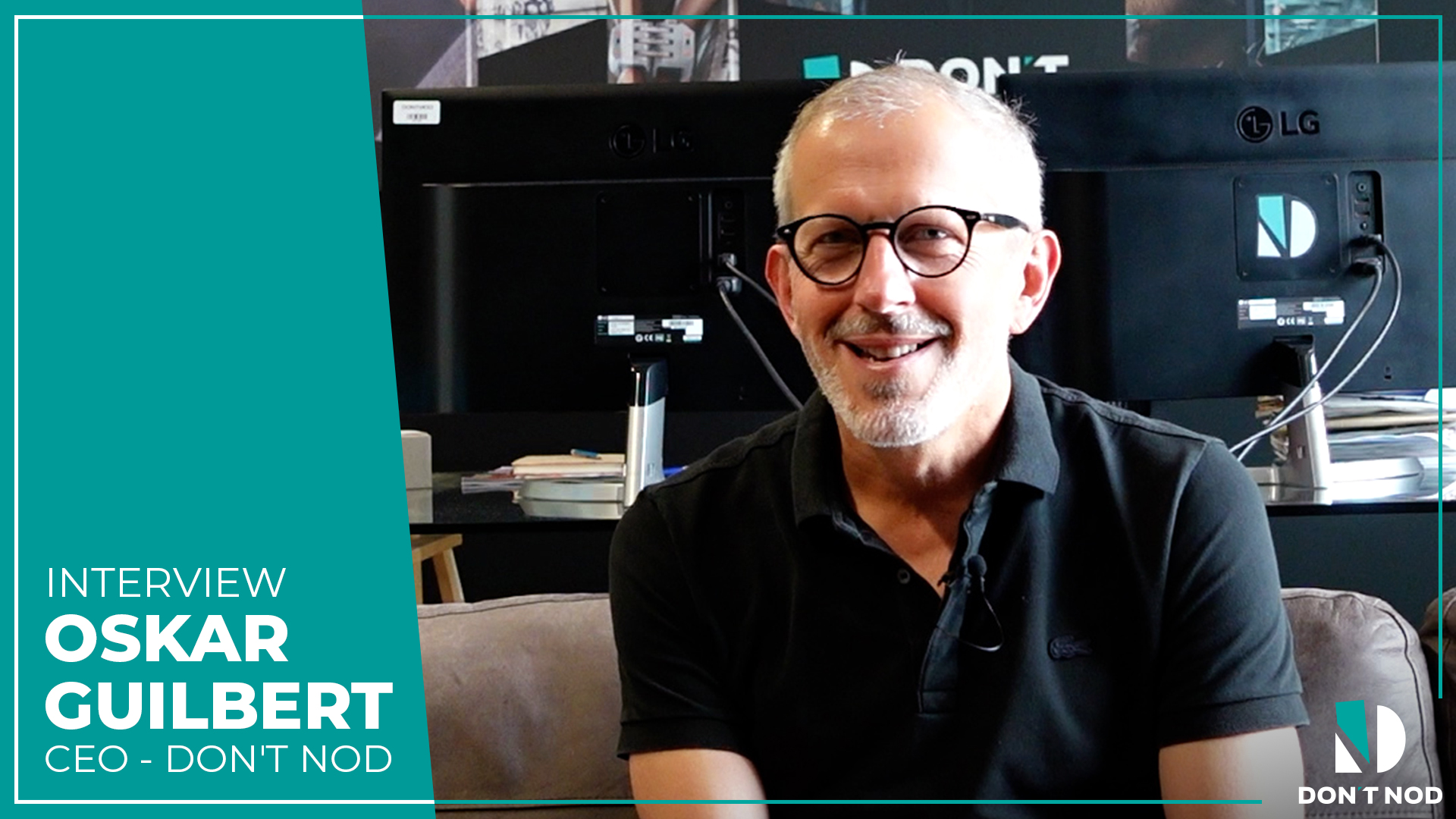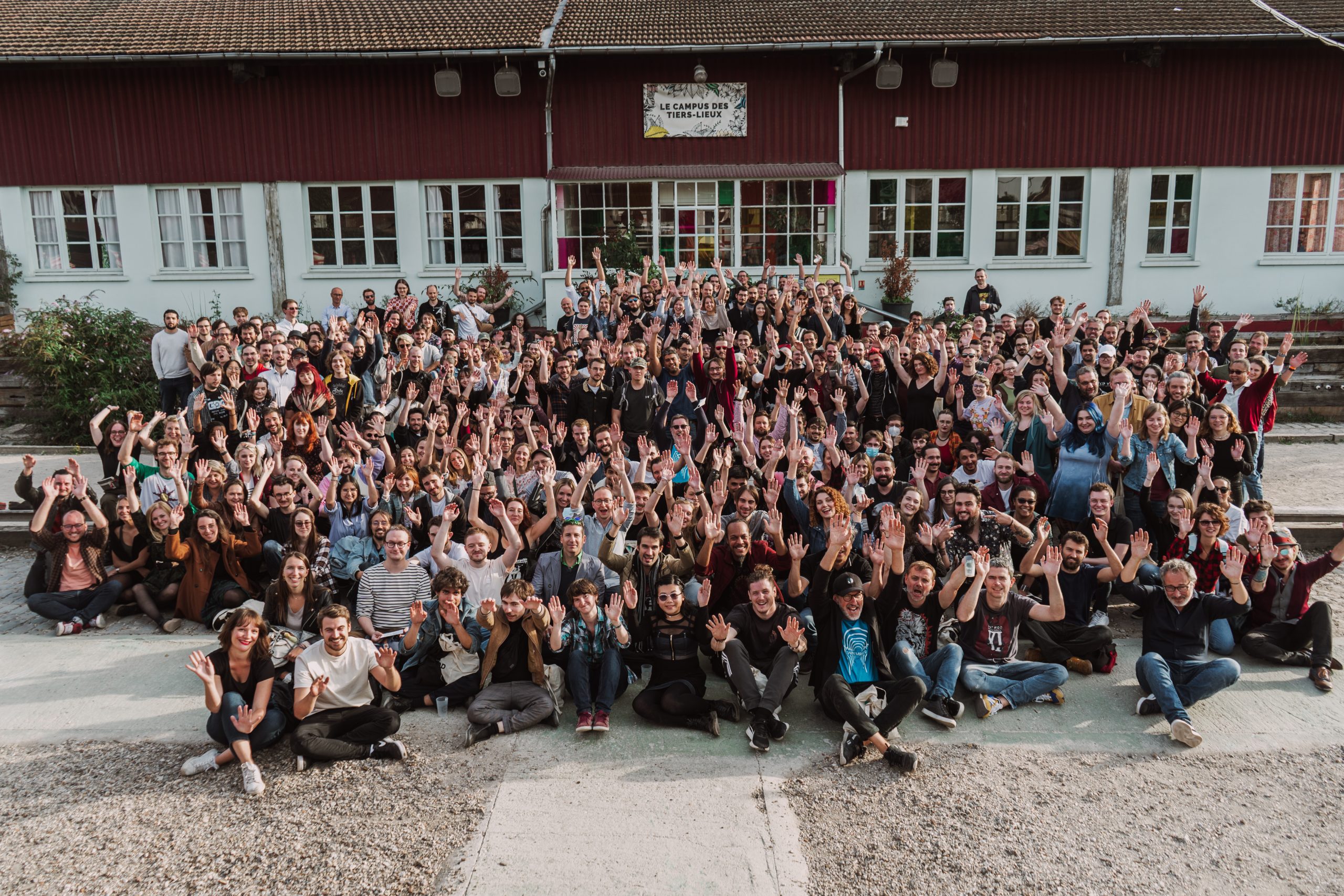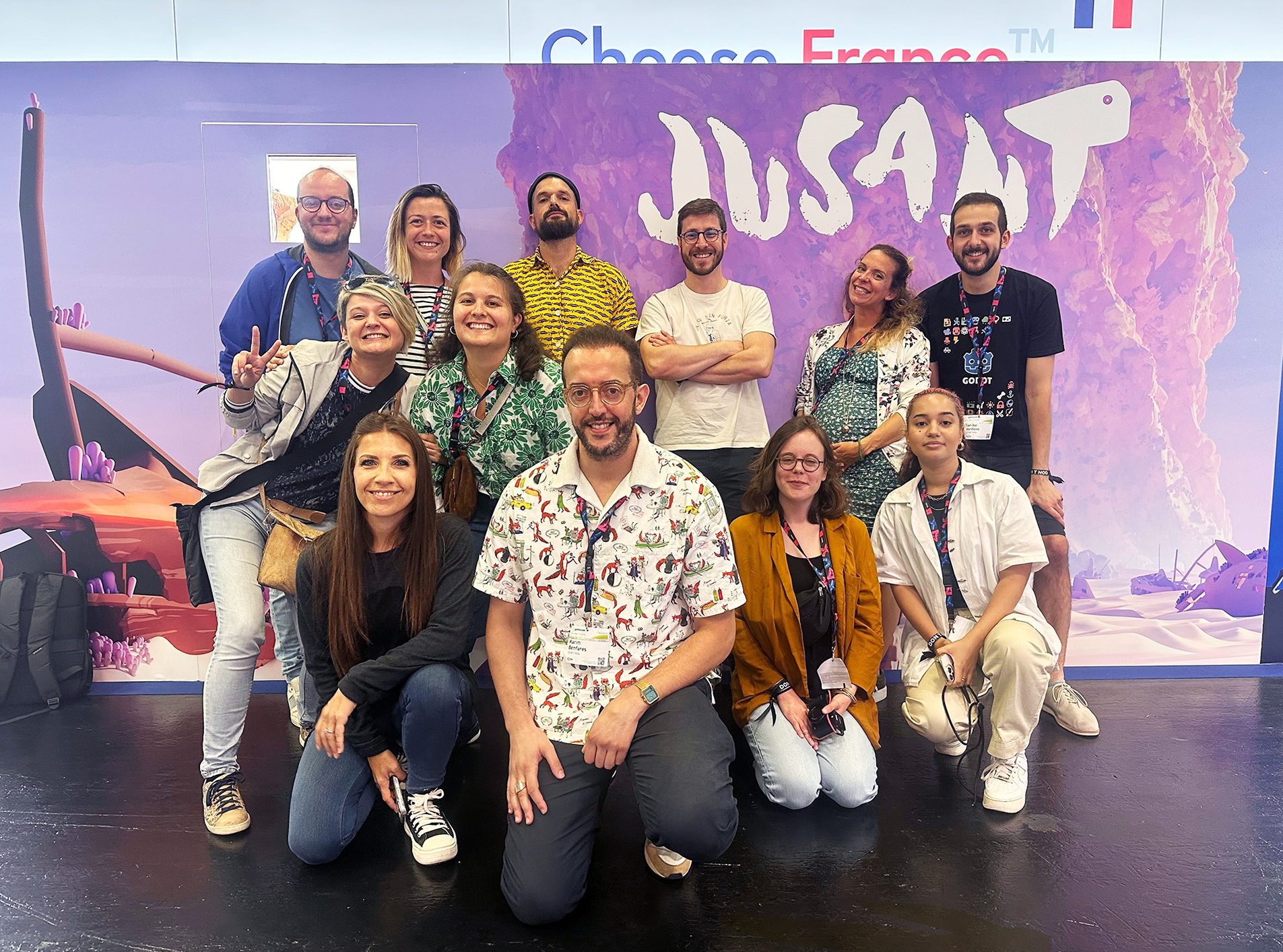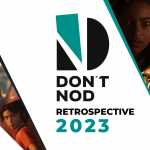An interview with Oskar Guilbert

We sat down with DON’T NOD’s CEO and reflected on the past 15 years
It’s DON’T NOD’s 15th birthday this year, so we thought it was a perfect time to sit down with Oskar Guilbert and pick his brains about the history and DNA of the company. Find out what a CEO’s day to day is like, what Oskar’s proudest moment is, and what sets DON’T NOD apart from other studios.
Q: Did you ever imagine the studio would be what it is today?
Oskar: When I created DON’T NOD, I could never have imagined getting to where we are today. It’s really been an incredible adventure. When we started out, there were five of us. Today, there are over 360 of us in two countries, on two continents, with a studio in Paris and one in Montreal. We’re working on numerous productions. We’ve already released ten games, including the latest – Harmony: The Fall of Reverie, which I really think is a very, very fine project. So, it’s been a long road, and when we created the studio, no, I could never have imagined that we’d be here fifteen years later. It’s a great, great success story.
Q: Did you meet or exceed the goals you set for yourself back then?
Oskar: At the time, we set ourselves one goal: to release a game called Remember Me, and that was making a AAA from scratch, which is already a huge challenge. But if we’re talking about goals in general, I think we far exceeded them with Life is Strange, Vampyr, Life is Strange 2… In short, all the very, very fine games we’ve released over the years. After Remember Me, which was also a very, very fine game. So yes, I think we’ve far surpassed them in terms of game releases, critical appreciation I’d say, and appreciation from our players. We’ve really created a very large community, with several million people following us on our various networks, and we’re really very happy with that, and it’s an incredible success for us.
Q: What’s your day-to-day life like in your role as CEO?
Oskar: Well, my working day is often spent in the office, because I like to be there. I like to be with the teams; I like to have direct, visual contact with people, but that doesn’t prevent me from working via teleconferencing tools. But I like to have this contact, because I think there are things that come through that aren’t necessarily the same when you’re working with screens. So my days may be different, but it’s an important job with, for example, human resources, production or marketing, it’s a variety of subjects, it revolves a lot around the production of games. Then, once production is finished or even in progress, it’s on to the marketing of the games and also something I like to do, which is the relationship I have with my shareholders, who are loyal shareholders, who have been with us for a very long time too, like our co-founder Kosta Yanev, but also more recently, all the exchanges we can have with Tencent and Julien Barrès who represents it on our behalf. So it’s between production, communication and shareholder relations. That’s pretty much my daily routine.
Q: What’s your favorite part of your job?
Oskar: Well, I think there’s one thing I really like: the whole part where we initiate projects. It could be game projects, it could be communication projects, it could be a new subsidiary we’re setting up. For example, the subsidiary we set up in Montreal, which has now become a fine studio, with a fine team. So, I think where I have the most fun, I’d say, is at the beginning, when we launch the projects. And then after that, there’s perhaps another phase which is also very gratifying, very important, and that’s the release phase. It’s when the games finally reach the end of all this work, when they arrive at our players’ homes and are appreciated by our communities and journalists. And then to see how happy the teams are to have finished their work and to be proud of what they’ve achieved. So I think these are my two favorite moments. Then you’re going to say I’ve got one moment, then another four years later or two years later or three years later. It all depends on the game, but I think the strongest moments are those.
Q: How has DON’T NOD developed over the last fifteen years?
Oskar: Over the last fifteen years, there’s been an incredible amount of work done by the games teams, always with quality and originality. Remember Me, our first title. Then the huge success of Life is Strange. Vampyr too, something incredible. One thing led to another. And we’ve kept this quality, this capacity to surprise our players in spirit, in values that are very important to us. And then, this year is just incredible, with three releases in the year, we’ve just announced Harmony: The Fall of Reverie, Jusant, and Banishers: Ghosts of New Eden. It’s going to be quite a year. I think 2023 is one of the best years for DON’T NOD.
Q: What’s the most valuable lesson you’ve learned?
Oskar: So the most valuable lesson I’ve learned over the last fifteen years, I think it really has to do with teams and working with others. What’s really fundamental in building a company, in making a company successful, is a strong team. A team that you’re aligned with and a team of people who are probably much more talented than me, each in their own field of course, and who are going to be able to take this vision, this strategy that I’m working so hard on and make it a success. So it’s really the team, the quality, the alignment, the solidity of this team on which we can rely, on which we can build, it’s really something fundamental.
Q: If you could go back in time, what advice would you give yourself?
Oskar: So if I could go back, I’m not sure I’d change a lot of things. I think it’s a journey. We’re the result of a certain number of elements that we’ve been able to build on, the relationships we’ve had with this or that person. I was talking about it earlier: the cohesion we can build with our teams. So I think I’d do it all again. I wouldn’t really change. I think what’s interesting is the journey, it’s the path, it’s how you get there, and you can take different paths, you can modify them, etc. But somewhere, all that, it’s the same thing. But in the end, it all balances out and converges towards a goal. So no, I think it’s been a good journey and I’d do it all again.
Q: How would you describe DON’T NOD’s DNA?
Oskar: So DON’T NOD’s DNA, I think, is making games that are meaningful today, that resonate strongly with our communities and our talents. It’s a very important thing, because I think that’s really what success is. It’s when we manage to resonate, I mean, with our communities. And the question of meaning is very important to us, through all our games, but also through the way we build society. So it’s a question of meaning, with different genres, with creative freedom that we’ll be able to leave to our teams. Of course, paying attention to market trends is also very important, but we’re going to be able to make action RPGs with big blockbuster budgets, as we did with Vampyr, and as we’ll be doing with Banishers: Ghosts of New Eden very soon. As you can see from the latest trailer, it’s an absolutely fantastic game. And then on the other hand, other types of games like Harmony: The Fall of Reverie for example, also a very beautiful game in a different genre, or our bigger successes to date, like the Life is Strange series. Always with this question of meaning, always with this strong narrative, strong characters and an emotion that we manage to convey to our communities and that our communities will seek out.
Q: What sets DON’T NOD apart from other publishing studios today?
Oskar: Well, I think what really sets DON’T NOD apart today is this question of meaning, which is something virtuous in the way we operate. It’s something that’s very important for our players, for our communities, through the games we make, which present characters that are like them. It’s also something that’s very important for us internally, for the DON’T NOD teams, for the talents. This question of meaning is important. That’s why they come to work for us. And also, of course, for our investors. It’s important to know what kind of company they’re investing in, and the question of meaning also plays a very important role. So I’d say it’s a virtuous circle that brings together these three aspects: our players, our talent and our investors. And it’s really something quite unique, I think, in this industry.
Q: What is your proudest moment? What has marked you the most since the creation of DON’T NOD?
Oskar: The moment that has marked me the most since the creation of DON’T NOD. I’ll give you two. I’m sorry, I’m not going to go for two for the price of one. Firstly, the release of Life is Strange, the reception we got for it, and perhaps the award we received at the Tokyo Game Show, which was an absolutely extraordinary moment, with the Mario designer presenting me with that award. It was a really powerful moment. And perhaps a second moment that was also absolutely incredible was the IPO (entering the stock market), the moment when it was a success. And it’s true that it’s crazy to feel like that and to think that we’re finally going to be able to co-finance our games, that we’re going to be able to own our creations. That was something, it was also a pretty crazy moment.




